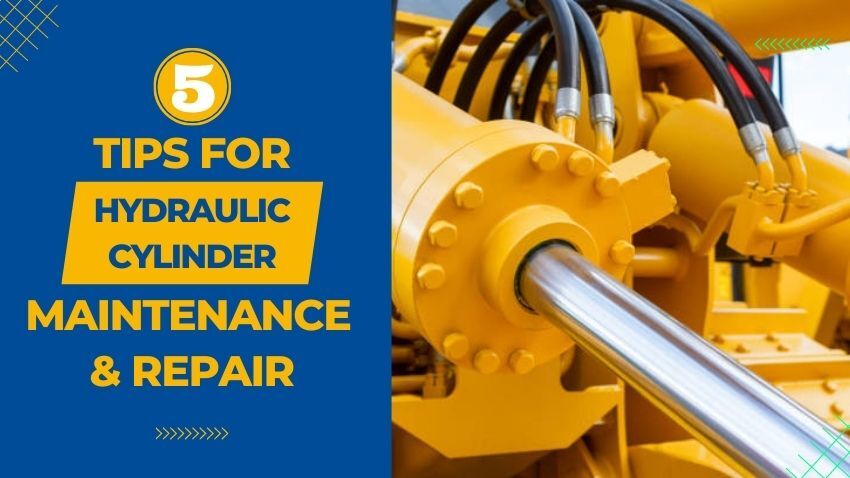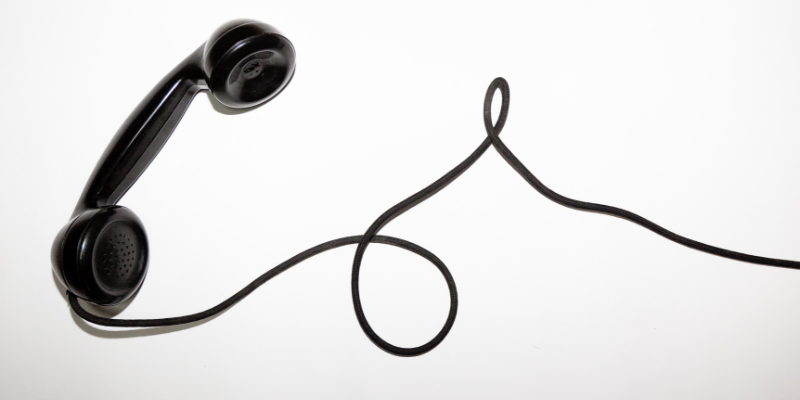5 Tips for Hydraulic Cylinder Maintenance & Repair

Hydraulic cylinder repair and maintenance
You’re probably already using some hydraulic equipment; that’s why you decided to click on this page! Advanced Electronic Services is glad you’re here, and we’re happy to provide you with some insights from the hydraulic repair services experts.
If you rely upon commercial hydraulic equipment to make your business go, then it’s important to make sure your hydraulic cylinders are functioning properly. An issue with a hydraulic cylinder is all it takes to sideline your hydraulic equipment, along with your productivity. And if you’ve got a hydraulic cylinder repair problem that needs solving, the pros at AES can provide you with a solution!
Not all that familiar with the ins and outs of hydraulics? We can educate you more about that, too. Hydraulics are literally all around you, being used in everything from elevators, to personal vehicles, to commercial trucks, to cranes, to all sorts of specialized industrial equipment. Hydraulic systems can move some impressively heavy loads, and can also function reliably in some high-pressure situations.
How does a hydraulic cylinder work?
Hydraulic cylinders have been around for more than 300 years, and work based on Pascal’s law of fluid pressure. Science demonstrates that when pressure is applied to a fluid, equal pressure is exerted throughout the fluid in all directions. Whenever this fluid is confined to a small space, the resulting hydraulic force can be channeled to drive all sorts of focused applications.
Hydraulics come in handy in any situation where a strong push or pull force is required. A little applied force can go a LONG way with a hydraulic system! Hydraulics also impart more flexibility in terms of system design, and can boost the efficiency of your system as well.
What are the 5 leading causes of hydraulic cylinder failure?
The combined stresses of high pressure and high demand can take a toll on any hydraulic cylinder assembly over time. Here are some of the most common sources of hydraulic cylinder failure we see at AES:
1. Hydraulic fluid contamination
This is perhaps the most frequent cause of hydraulic cylinder problems. If particulates or other impurities infiltrate the hydraulic fluid, the cylinder can become scratched, worn, and damaged. Contaminated fluid can degrade cylinder seals and fittings, too.
2. Hydraulic seal damage
Speaking of damaged seals, that’s another common cause of hydraulic cylinder problems. Seals can be degraded by contaminated fluids, or by abusive operation of the hydraulic pump assembly. Once these seals become compromised, they can’t maintain correct cylinder pressure, which eventually results in significant damage to the assembly.
3. Improper hydraulic cylinder installation
Sometimes a problem stems from the fact that the hydraulic cylinder was improperly installed, to begin with. Side loading and other perpendicular forces can place unnecessary strain on cylinder components, which can result in premature cylinder failure.
4. Issues with pistons
The piston is another crucial element of a hydraulic cylinder assembly. If the piston becomes damaged, the cylinder system can fail. Pistons naturally show some wear and tear over time, but this wear can be accelerated by things like fluid contamination or side loading stress.
5. Too much pressure, or too little
Hydraulic systems work best under very specific pressure conditions. Too much internal pressure can stress hydraulic cylinders and pumps, leading them to wear out faster. Too little pressure in the system can also result in similar problems. It’s essential to maintain correct internal pressure according to the manufacturer’s prescribed recommendations.
5 tips for hydraulic cylinder maintenance
If you want to keep your hydraulic system humming along at maximum capacity and efficiency, here are five things you can do in terms of hydraulic cylinder upkeep and performance maintenance:
1. Keep your fluid clean
As we mentioned above, one of the most common causes of hydraulic failures is hydraulic fluid contamination. Fit your system with high-efficiency filters, and be sure to change them on a regular basis.
2. Follow a regular maintenance schedule
Follow a prescribed schedule of regular maintenance is one of the best ways to keep your hydraulic cylinders performing at an optimal level. Beyond paying attention to fluid levels, you also want to look for any misalignment issues. Misalignment can easily result in premature wear of any hydraulic cylinder.
3. Rotate or alternate cylinders as needed
Assuming downtime is never a good option, it’s a good idea to have another cylinder available as a critical spare, or for rotating in as an alternate. This will help to keep all of your cylinders in good shape, and will further prolong the longevity of your hydraulic system.
c4. Maintain your cylinder accessories, too
The piston is another crucial element of a hydraulic cylinder assembly. If the piston becomes damaged, the cylinder system can fail. Pistons naturally show some wear and tear over time, but this wear can be accelerated by things like fluid contamination or side loading stress.
5. Hydraulic cylinder testing
Regular hydraulic cylinder testing is another proven strategy for maintaining optimal performance. This usually means checking for any leakage, which involves pressurizing the cylinder at the end of a stroke. For double-acting cylinders, a mid-stroke bypass test might be more valuable. And hydrostatic testing can help to evaluate a piston at any point in the hydraulic process. Got questions about hydraulic cylinder testing, or need some help in this regard? Just reach out to the pros at AES!
Hydraulic system repair services from the AES pros
The trained team of experts at AES can provide hydraulic cylinder repair services, along with any sort of hydraulic pump repair services you may need.
Other companies may say they offer hydraulic equipment repair service, but they don’t provide the same level of careful workmanship and personalized customer service you’ll receive from AES! We’ll take care of your hydraulic repair needs, and we’ll also take good care of you.
We’ve been providing quality electronic and industrial mechanical repairs since 1992. You can trust us with your hydraulic equipment repairs, and we’ll take care of your other industrial equipment repair needs, too.
Ready to keep all of your hydraulic cylinders and hydraulic systems moving smoothly? Just fill out our Request A Quote form, shoot us an email at sales@aesintl.com, or just give us a call at 866-386-1001. We’ll deliver what you need, when you need it, and we’ll do so with the best customer service in the business! Got a hydraulic equipment problem that needs addressing? AES has you covered!





